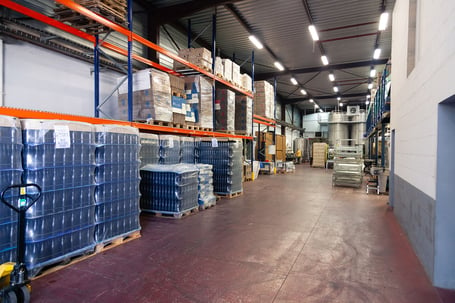In the manufacturing industry, quality certifications can help drive a company to success. These certifications give a company reputability for manufacturing standards. Quality certifications matter in manufacturing both to the company and the customer. From a company standpoint, certifications help with quality and service, annual and independent audits, review and testing capabilities, reliability of production and delivery, safety, and error minimization. In short, it forces the company to stay in line with operational and quality standards. It is easy to see how manufacturing certifications are beneficial to a customer. With a certification, a customer can easily rely on the fact that a certified company is trustworthy and keeping up with industry standards.
What is the Best Quality Certification in Manufacturing?
 There is not a direct answer to this question because there are so many different types of certifications. There are a variety of certifications that appeal to different companies and the industries they operate within. These vary from large and broad certifications that apply to a wide range of companies, to niche certifications that are designed for a more specific group of companies. It is important for companies to do research on which certifications are best suited for their products and/or services. For example, ISO is a popular certification. An ISO certification can be beneficial to wide range of companies in a variety of industries. On the other hand, there are certifications, such as SQFI, that focus on food safety and quality or ACC that is directed toward the business of chemistry. It obviously wouldn’t make sense for a food manufacturer to get an ACC certification and vice versa. Picking the correct certification will boost you company’s reputability and customer satisfaction.
There is not a direct answer to this question because there are so many different types of certifications. There are a variety of certifications that appeal to different companies and the industries they operate within. These vary from large and broad certifications that apply to a wide range of companies, to niche certifications that are designed for a more specific group of companies. It is important for companies to do research on which certifications are best suited for their products and/or services. For example, ISO is a popular certification. An ISO certification can be beneficial to wide range of companies in a variety of industries. On the other hand, there are certifications, such as SQFI, that focus on food safety and quality or ACC that is directed toward the business of chemistry. It obviously wouldn’t make sense for a food manufacturer to get an ACC certification and vice versa. Picking the correct certification will boost you company’s reputability and customer satisfaction.

After reviewing the benefits, one can’t help but wonder if there are potential downsides to a certification. Tom Foy, Global Director Training & Process Management at Radwell International was able to answer this question. “There really is no downside. It takes a bit of effort for sure, but as with anything, a bit of effort is good.” The internal benefits to an organization, combined with increased customer satisfaction equates to virtually no downside. There is
no reason for a company to decide against going through the process of receiving a quality certification. The hard work that goes into maintaining the standards is worth the effort if it boosts your company.
How to Choose the Right Certification for You
In order to choose the right certification for your manufacturing company, start by doing some research. Look into some broader certifications, and then start to look at the certifications that are more catered to your specific company. According to Tom Foy, it also “depends on the size of the organization” in order to determine what type of certification is most beneficial. There are hundreds of different types of ISO certifications alone. A lot of organizations with certifications have many subcategories that range in specificity.
Here is a list of some organizations with certifications for manufacturing:
- ACC- About the American Chemistry Council | Mission of American Chemistry Council
The American Chemistry Council (ACC) is an association that includes companies involved in the business chemistry. There certification requires audits based on two models, RCMS® or RC14001®. They require that the company operations are keeping up with environmental standards, employee safety, etc. - AISC- AISC Home | American Institute of Steel Construction
The American Institute of Steel Construction (AISC) is a nonprofit technical institute and trade association that deals with structural steel design and the construction industry. They set the standard for the structural steel industry. Their certification ensures a high-quality steel structure through error prevention and error correction. - ANSI- American National Standards Institute - ANSI Home
The American National Standards Institute (ANSI) is a non-profit organization that defines the standards for demonstrating openness, balance, lack of dominance, due process, and consensus. - ANSI/NCSL- Legislative News, Studies and Analysis | National Conference of State Legislatures (ncsl.org)
National Conference of Standards Laboratories (NCSL) is an organization that is involved in metrology in relations to education, development, and research. - API- API | Individual Certification Programs
The American Petroleum Institute (API) is a trade association. It sets the standards for the development of petroleum and petrochemical equipment and operation. Their certification helps to maintain safety and help with efficiency. - ASME- The American Society of Mechanical Engineers - ASME
The American Society of Mechanical Engineers (ASME) certification is proof that a company is keeping up with public safety and quality. It is a universally recognized QA Program designed to certify manufacturing businesses.  CEN- Welcome to CEN – European Committee for Standardization
CEN- Welcome to CEN – European Committee for Standardization
The European Committee for Standardization (CEN), is a collaborative association involved with 33 European countries. They set standards in areas including air and space, construction, defense and security, energy, environmental health and safety, healthcare, transportation and packaging.- CSA- Product Certification & Standards Development - CSA Group
The Canadian Standards Association (CSA) is accredited in Canada, the US, Europe, and Asia. They are focused on safety and sustainability in homes, work, and infrastructures. - EASA- EASA | European Union Aviation Safety Agency (europa.eu)
The European Aviation Safety Agency (EASA) is an organization that works to ensure safety and environmental protection in the EU. - IATF- International Automotive Task Force
The International Automotive Task Force (IATF) a number of automotive manufacturers. The IATF’s goal is to provide top quality automotive products. - ISO- ISO - International Organization for Standardization
The International Organization for Standardization (ISO) is one of the most well-known certifications in manufacturing. This organization sets the standard management, manufacturing and other procedures at a company. - ISO/IEC- ISO - IEC - International Electrotechnical Commission
The International Electrotechnical Commission (IEC) is a standards organization that regulates standards for corporations involved in electrotechnology related work. - Nadcap- Nadcap - Performance Review Institute (p-r-i.org)
Nadcap is an accreditation program that focuses on the aerospace and automotive industry. Their goal is quality improvement within the industry. - NELAC- The NELAC Institute (TNI) (nelac-institute.org)
National Environmental Laboratory Accreditation Conference (NELAC) created the National Environmental Laboratory Accreditation Program (NELAP), which is a certification that ensures that performance standards and environmental laboratory operations are acceptable. These standards are determined by TNI through a long process involving experts in the field. - NFFS- Non-Ferrous Founders' Society - Home (nffs.org)
The Non-Ferrous Founders Society (NFFS) is a not for profit trade association designed to advance manufacturing, recycling and the use of non-ferrous castings. - PRI- Home Page - Performance Review Institute (p-r-i.org)
The Performance Review Institute (PRI) is a not-for-profit organization and is in affiliation of SAE International. PRI has a mission to provide customer solutions, improve product quality, and promote customer collaboration. - Quest Forum- Home - QuestForum
Quality Excellence for Suppliers of Telecommunications (QuEST) Forum is a group that is responsible for the maintenance of TL 9000 standard. - SAE- SAE International
SAE International is a global association consists of engineers and technical experts in the aerospace, automotive and commercial-vehicle industries. Their goal is to advance mobility knowledge. They mainly set aerospace standards. - SQFI- SQFI Home Page - Safe Quality Food Institute
SQF Institute is an that sets food quality standards. A certification shows that a company is committed to maintaining a safe food manufacturing process and excellent food safety management skills. - The Foundation for Food Safety Certification- FSSC 22000 - FSSC 22000
The Foundation for Food Safety Certification focuses on food safety management and quality management. It involves food, food packaging, food storage, distribution, etc.
Quality certifications take hard work and dedication. A lot of time and effort goes into the achievement and maintenance of a certification. To maximize the benefits of a quality certification, it is important to choose the right one. Every operation is different and may benefit from different types of certifications but if the right quality certification is chosen, there really is no disadvantage.
To learn more about how Radwell International can help your operation

